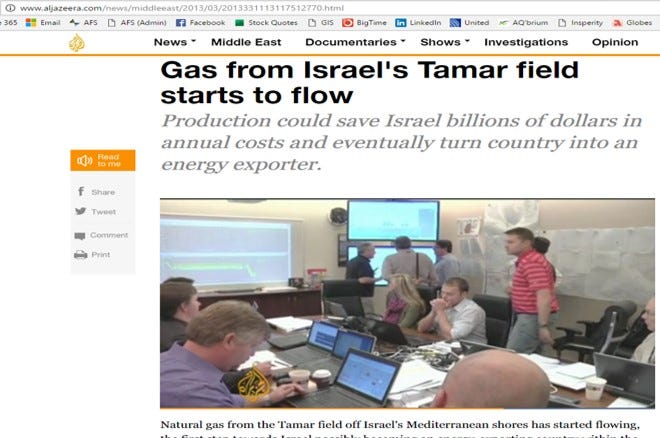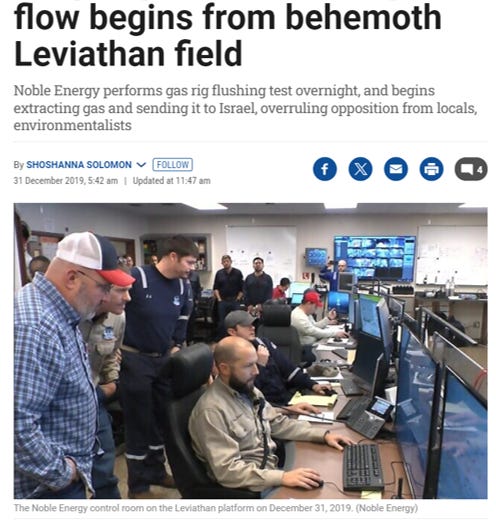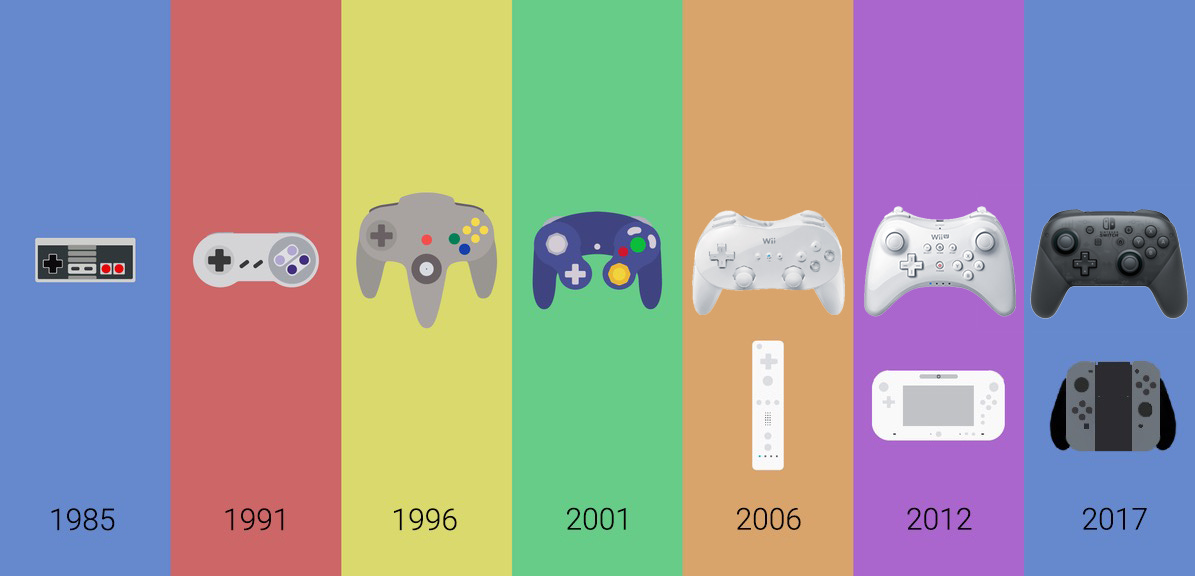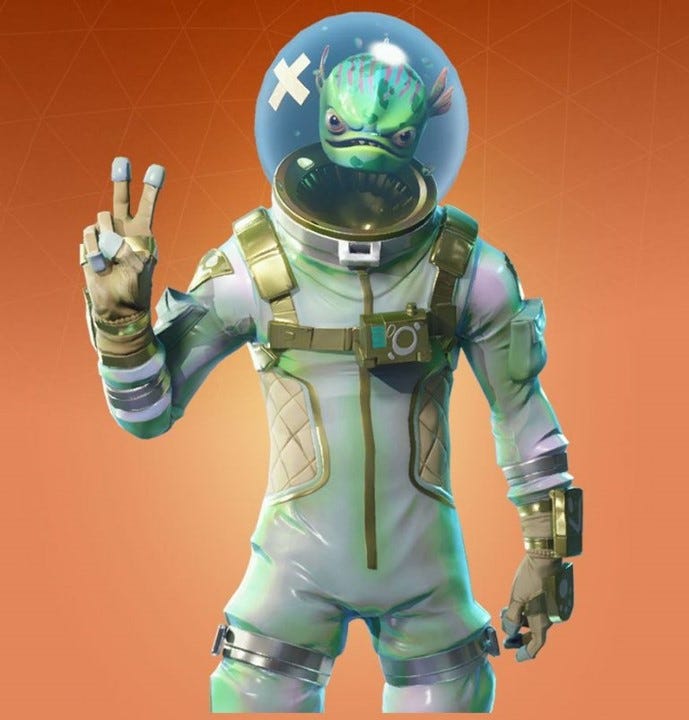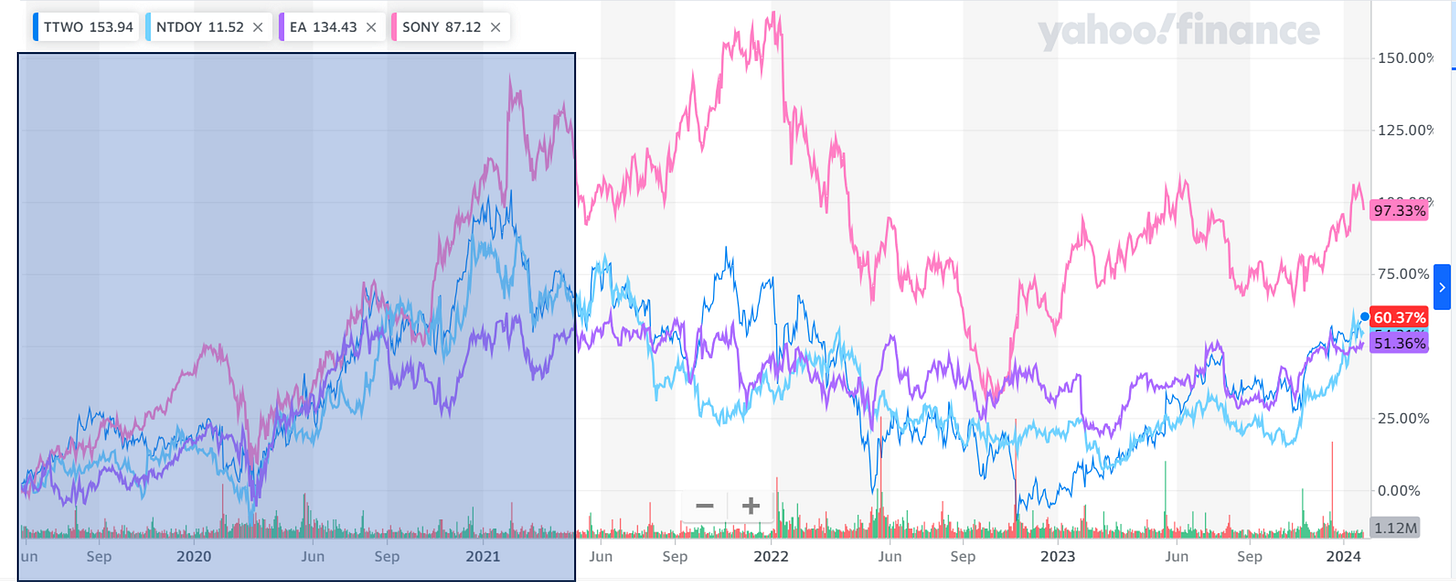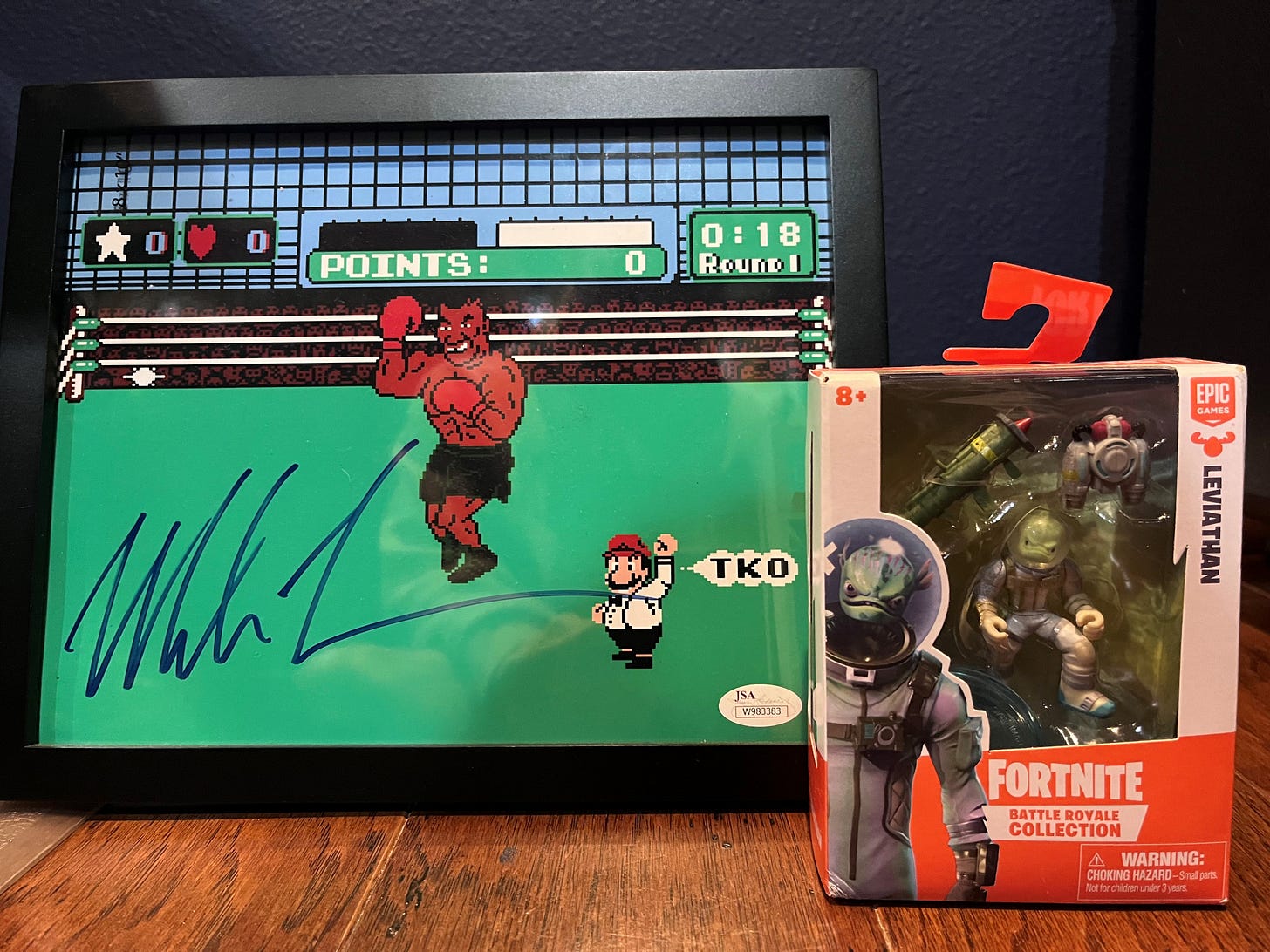Leviathan: An Epic Story
COVID's Lasting Legacy
<Make sure to read to the end for a ‘Usual Suspects’-type plot twist…>
You’re never gonna wish you had fewer EPIC stories to tell - Alex Hormozi
Eastern Med Gas Fields
Golfing in 2009 (Blackhorse South, 11th hole, remember it to this day…), I got a call about helping with some PVT/compositional work on a “new” development. The call from Noble Energy was in regards to their recent deepwater discovery and my previous mega-gas hub experience seemed useful. We were typically focused on the major basins at the time (Gulf of Mexico, West Africa, Northwest Shelf, etc.), so I didn’t expect “Deepwater Israel” to be the location in question. To be honest, I took the meeting out of curiosity and didn’t expect much to come out of it. Fast-forward 15 years and the region has largely dominated my professional career. A very personal connection to the people and the region.
The discovery of the deepwater gas resources in the Eastern Mediterranean (EMED) are led by Tamar / Leviathan (Chevron, post-acquisition of Noble), Karish (Energean), Zohr (Egypt), and several prospects in Cyprus. This is a reason we opened an office in the region last year - we are committed to the basin for years to come. Playing the long game. Stay tuned for an exciting speaking announcement from that office…
But, the EMED trail was really blazed by the discovery of Tamar back in 2009. Many of the wells in the Israeli sector are characterized as ‘ultra-high rate’ gas wells (>250 MMscfd per well)1, which are some serious volumes and world-class producers. As I have written before, I was fortunate enough to be part of the team in Israel that ultimately brought Tamar on-steam, 31-March-2013, smack in the middle of Passover/Easter.
After Tamar was brought on-line, rebalancing the entire region’s energy and geopolitical mix thanks to the abundant natural gas at their doorstep, the next big field to come on the radar was Leviathan. In close proximity to Tamar…but bigger. As shown below, ULTRA-high flowrate wells now meant maximum capability of ~400 MMscfd from a single well. Similar to Tamar, Leviathan was destined to be another ‘fast track’ project for the State of Israel, bringing first gas to market ~3 years from Final Investment Decision (FID). Leviathan, as a project, had a complicated history of start/stop (pre-FID), but once it was finally go-time in 2017…the project went full-speed ahead.
As Leviathan got underway and progressed towards completion, there was no way I was going to miss out on a chance to be involved in another startup back in Israel, especially for something as marquee as this. This was a chance to do everything better, safer, and easier. Almost a ‘do-over’ to fix anything that we could have improved on Tamar. In fact, I used this slide as the introduction to a start-up presentation I gave for Leviathan (the Tamar team was not overly impressed).
Dec 2019: Leviathan Startup
First gas was scheduled for year-end 2019. I was in-country with the rest of the project and operations teams as we made the preparations for a safe and successful startup. Given that we had “been there / done that” already on Tamar…and it was a lot of the same team…there was a good feeling about a smooth process. In fact, a few of us made celebration plans to go skiing in Italy after 1st gas and getting the system lined-out. We had tentatively booked Feb-2020 (look up “Italy 2020 lockdowns”…)
And, my brother was in Israel too, so we got to work together on the startup planning. Pretty cool experience, but made our mother nervous, with both kids away working on something that was making the newspaper back in the Houston. Not often that international projects make the local paper, especially for an energy-focused city like Houston. “Is this what you doing for work?” I usually don’t talk about project names with my family, but this one was iconic (and the crazy circumstances around it) that “Leviathan” becomes pretty common around the house.

Unlike Tamar, the political climate in Israel around the project was much more challenging. Environmental opposition to Leviathan resulted in numerous court challenges, recycles, delays, and - quite honestly - introduced unplanned technical risks as a result of this ‘start/stop/hurry-up’ mentality. Every day, there was something new going on that needed attention, at the facility and in the courts. Lots of late-night meetings / contingency plans.
Pulling up news articles from late December shows the constant ‘back-and-forth’ around when 1st gas would occur. While the target was still “end-2019” - and we all desperately trying to make that - we knew that the eyes of the region were watching from an environmental perspective, so we had to be extra diligent. Oh, and this was also during Hanukkah and Christmas, so getting everyone’s full participation was a challenge, particularly from the various ministries and agencies to sign off.
Somewhere between Herzliya / Houston, we worked on getting Leviathan started up by year-end. Christmas plans were cancelled and New Years plans meant sleeping in the Noble office while we waited for commissioning / startup activities to proceed (when your reservoir is situated 130km away, choke changes take a long time to progress through the system…). All in the name of Leviathan. But, we got ‘er done. And hopefully going back again soon…anybody want to come with me?
Early 2020: COVID Lockdown. Not a game…or is it?
Shortly after returning home, the world started to go into COVID lockdowns. Europe seemed to react first - so not only getting back from Israel, but also glad we didn’t take that Italy ski trip in Feb (but…there are worse places to be stuck than the Italian Alps during ski season). In the US, we saw closure of schools and offices (although, at the time, we were able to keep our company open because we operated a laboratory that was deemed ‘critical infrastructure’). Most of the extra-curricular (sports) programs shutdown too, even the ones outside. And, probably the biggest impact, the isolation of families, particularly the elderly.
So, with no place to go for human connection and the NEED for human connection, what were family/friends to do during the COVID haze? Well…one answer seemed to be play video games. If kids couldn’t go play sports together outside, they sure could jump on their iPads/Xboxes and start gaming with each other (eSports, right?). And they did. All the time. Face-timing, playing, lots of yelling, some cussing, but lots of laughing. Its not a substitute for human connection, but it was the next-best-thing.
So…let’s pause here and see if anyone knows how this story is going to end…
While the kids played, I think they forgot I knew some stuff too. (They don’t know about ‘A-B-B-A’ or ‘007-373-5963’…if you know, you know!). In fact, my early life chapters can probably be organized by games:
Pitfall→ Super Mario Brothers → NBA James → Goldeneye
We had always played video games growing up. My youngest brother broke his arm falling off the bed after ‘dying’ once! We used to host Bill Walsh College Football tournaments in our dorm (Clemson ‘81 Defense…what’s up 3rd Butler / Markley…) And now, I got tired of overhearing kids say “Coach Tommy, come play with us….No, bruh, he’s too old” in the background. So this started to feel like a right of passage - I’m not as good as I once was (there are too many buttons now!), but I’m as good once as I ever was…I wanted back in.
At the time, the kids were all playing Fortnite (Epic Games) online. So, I decided to start practicing, showing them how it’s done. In Fortnite, you get to pick your costume (“skin”) so when you are done shooting someone, you can dance all over them in a mocking style of your choosing. Getting back to Leviathan, I talked about it all the time and - lo and behold - it happened to be a skin in Fortnite! The boys were fired up because finally I did something cool: I worked on a “Fortnite project”. Not some mega-important, multi-billion dollar development. Not some transformational project for Israel. Nope, it was just cool. From there on, I became known as Leviathan. So, I had to play now…
And, speaking of protecting the elderly….my dad (70 at the time) was missing seeing the grandkids for those first few months. So, what did he do?? He taught himself how to play Fortnite!! He would sneak around, log into his computer at 2am, and practice so he could go play ‘Squads’ with his grandkids. If you were ever snipped between March - May 2020 by “Grandpa1950”, you should be really embarrassed. All of this actually really brought our family together and gave us all something to do, some connection.
And - to bring it home even more - I actually had conference calls about a (different) deepwater asset over Fortnite with a production engineer in the Gulf. I had mentioned I was teaching myself to play and he was doing the same! So, we agreed to start an “old man’s Duos” game that we used to play late at night. Glass of whiskey, talking multiphase flow hydraulics, and Fortnite (no-build). Could possibly be the most nerdy conversation even overhead on the Epic games servers. COVID lockdown was a wild time indeed!
Video Game Business
I guess we weren’t the only ones who had this great idea to play games as a family. As with many of the ‘stay-at-home’ stocks during COVID, video game stocks took off during the pandemic.
It may be all fun-and-games…but this is a serious, data-leveraged business. Epic Games - the parent of Fortnite (and other games) manages up to 15 million concurrent players during peak times, storing petabytes of data in data lakes, which are now growing at 2 petabytes/month. Fortnite processes 92 million events a minute! (And we complain in oil/gas about latency from our P/T gauges…). Epic has also partnered with Unreal Engine as the primary source for advanced, real-time graphics creation. Recently, Snoop Dogg has also collaborated with Unreal to facilitate game creation and providing a platform for minority creators. Nothing says cool like Snoop. Epic had a recent valuation of $32billion…
Epic has opted for Amazon Web Services (AWS) for storage (S3), analytics, and scaling capabilities. Data analytics is largely focused on user experience and player tendencies, to assist Epic with delivering memorable events for their customers (which may be your own children!). Much like other industries, the video game market has several challenges with the increased data generation needs:
Scalability - how to build platforms that are adaptive to new technologies and a growing developer community, without over/under investing in computing horsepower. Epic also embraces serverless computing (AWS Lambda) to assist with rapid deployment for various back-end processes.
Global availability - with players around the world, up-time and low-latency experience is critical. With 125 million unique Fortnite users - each with different tendencies - the regional appreciation for user preferences is key. Plus, the dreaded “I’m glitching” can be the death of a game within the user community.
Content distribution - updating games with patches/fixes and content, often from edge locations to reduce download times. The need to stay current is paramount, especially in a market which lends itself to immediacy (“viral”).
Big data analytics - with each game telling a different story, using the data for insights into player’s behavior can lead to better user experience and/or ability to monetize new features with less risk/uncertainty in consumer behavior. Using machine learning to build, train, and deploy ML models at scale to improve user experience and increase monetization.
Because video games have moved away from the physical cartridge model into online, there are several moving parts that must be coordinated at all times. A “real-time pipeline” that requires data integration across multiple platforms.
The other challenge related to scalability is coping with the viral nature of the market - there is likely not a slow, organic growth model that allows data infrastructure to catch up. The need to have adaptive, real-time solutions that grow with the evolving customer and their preferences (either those stated directly or those deduced from the data analytic models) may drive more collaboration with open-source tools. The ability to outsource some of the more niche applications is a tool which can be leveraged effectively, thus building a data highway and allowing ‘app’ developers to plug-in with their specific subject matter expertise. Its a great model that expands the playing field.
What is really interesting is the current user’s ability - and expectation - about how accessible data should be. Immediate response. New features. Global connection. . Open-source collaboration for developers. All of those stupid buttons. And, in many cases, this is all engrained in the brains of teens (and pre-teens). How will this translate to their expectations in terms of higher education and future careers? They are going to consume information and expect products that, on some level, can at least compete with the video game market in terms of user experience. Their increased ability to multi-task with respect to data processing is going to definitely impact how they interact with tools in the future. Does this mean the death of the ‘simple’ Excel spreadsheet really is finally coming?
What does ANY of this have to do with Pontem?
At Pontem, we have talked often about ‘bridging the gap’ between data and discipline. We have also talked about unlocking knowledge beyond the limits of human performance. The Trailblazer. The Architect. The Sage. The Explorer. And, we do love a quirky data story.
In our short existence, we have used this to get involved in several different verticals where we think we can make a difference, woven together by this concept of leveraging data for better outcomes. We have dabbled in Minerals, Healthcare, Sports Performance, and Industrial, in addition to our core experience in Energy.
So…is it any surprise that dabbling in something so highly data-driven like the video game market would be next? We will take this one a bit more passively, but happy to say we are now in collaboration with Epic Games after a recent investment. Time to Level Up.
Who would thought you could connect Leviathan and Mike Tyson in the same story? And my parents thought video games were a waste of time…
(BTW, 007-373-5963 is the code to fight Mike Tyson, if you didn’t remember. Darn squirrel brain of mine can remember this, but not to take the trash out every Monday)
Healy, John , Waggoner, Steven M., Magin, Ian , Beavers, Matt , Williams, Kevin , and Russell Hebert. "Optimizing the Deepwater Completion Process: Case History of the Tamar 8 Completion Design, Execution and Initial Performance - Offshore Israel." Paper presented at the IADC/SPE Drilling Conference and Exhibition, Fort Worth, Texas, USA, March 2018. doi: https://doi.org/10.2118/189637-MS
https://medium.com/@harshitchipa/powering-epic-experiences-a-case-study-of-epic-games-use-of-aws-cloud-ce12a1107e00
https://www.zdnet.com/article/how-fortnite-approaches-analytics-cloud-to-analyze-petabytes-of-game-data/


